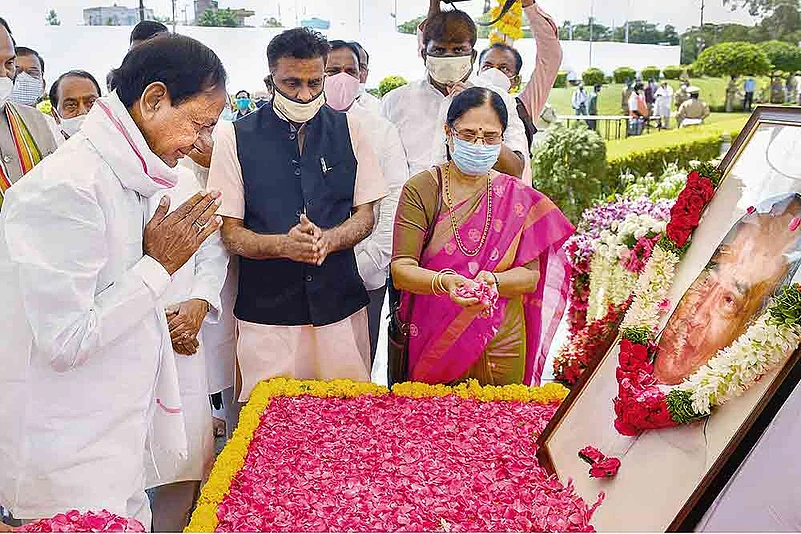The Telangana government led by CM K. Chandrasekhar Rao has decided to pass a resolution in the state assembly asking the Centre to consider conferring the country’s highest honour—the Bharat Ratna—to India’s ninth PM Pamulaparthi Venkata Narasimha Rao. “This is the least we can do as Telanganites for PV, our most valuable gift to the nation. After all, he was the second leader from outside the Nehru-Gandhi family to become PM,” says Telangana Rashtra Samiti secretary-general Dr K. Keshava Rao, a Congress veteran and PV’s close follower, who has been entrusted by KCR with the responsibility of overseeing the year-long birth centenary celebrations of Narasimha Rao that began on June 28.
Narasimha Rao and then finance minister Dr Manmohan Singh are famously associated with unleashing the liberalisation-privatisation-globalisation process, also called economic reforms, in the early 1990s. KCR, who would not miss out on honouring a son of the soil like Narasimha Rao, perhaps didn’t want to displease the Congress by seeming to give him full credit for the reforms. So his government has proposed to get Manmohan Singh to chair and address a conclave on reforms in Delhi as part of the celebrations.
“The government proposes to organise conclaves across India and in some foreign countries on some of PV’s pet topics, including literature, foreign policy and human resources,” says Shekhar Maramraju, son-in-law of Narasimha Rao’s daughter and member of the Ramananda Tirtha Memorial Committee. “We are delighted by KCR’s magnanimous gesture to honour PV, whose contribution as a politician during his chequered five-decade-long political career is immeasurable by any yardstick.” Reminiscences of some of PV’s contemporaries are being compiled to be published as a coffee table book, which will be released at the concluding function on June 28, 2021.
Besides being a linguist of repute, Narasimha Rao was the first politician to earn the epithet of ‘Apara Chanakya’ for his astute political skills. Heading a minority government from 1991 to 1996, Narasimha Rao combined a pioneering thrust on economic reforms with maintaining stable relations with foreign governments. His political career, which he started as a follower of Ramananda Tirtha, took him first to the freedom movement against British rule and then the agitation against the Nizam in Hyderabad. Eventually he joined the Congress and came to be known as a loyalist of the Nehru-Gandhi family. Although the relationship came under strain after Rajiv Gandhi’s assassination, it didn’t stop him from becoming the PM. He was later sidelined by his party, many say because the Babri Masjid in Ayodhya was demolished on his watch. His final rites could not be performed in Delhi nor was land allotted for a memorial of the kind that previous PMs had got.
M.S. Shanker in Hyderabad






















